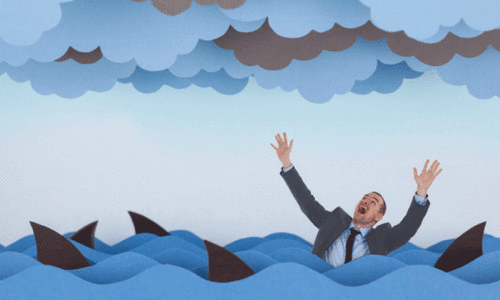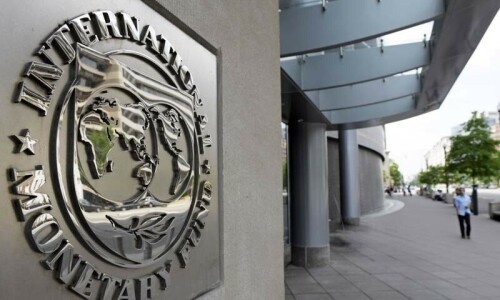HONG KONG, Nov 14: Standard & Poor’s cut its sovereign ratings on Pakistan further into “junk” territory on Friday, highlighting the country’s difficulty in raising the money that it badly needs to avoid defaulting on its debt obligations.
It marks Sap’s second downgrade of Pakistan’s ratings in as many months.
Friday’s downgrade comes even after the country’s top economic adviser said late on Thursday it expected the International Monetary Fund (IMF) and other lenders to provide billions of dollars in loans soon, and China to pitch in with $500 million.
To debt investors Pakistan’s most pressing obligation are $500 million in bonds maturing in February. The risk of default on that and other obligations have sent the cost of insurance in Pakistani debt soaring this year.
“The downgrade reflects our view that ongoing delay by Pakistan in securing external assistance ... has further increased the prospect of near-term debt service difficulties, heralding either a rescheduling of commercial external debt or an outright payment default,” said S&P credit analyst Argots Bernard.
S&P cut its long-term foreign currency rating on Pakistan to CCC from CCC-plus and its long-term local currency rating to CCC-plus from B-minus, putting both further into “junk” territory. The agency placed its outlook on the country as “developing.” The action places Sap’s long-term foreign currency rating two notches below ratings from Moody’s Investors Service, which in late October downgraded the country by one notch to B3.
Pakistani officials had previously said it needs to raise $3.5 billion to $4.5 billion to fill a financing gap, and an additional $10 billion to $15 billion to avoid a balance of payment crisis.
In a sign of Pakistan’s dire situation, the country had as of Oct 25 only $6.92 billion in foreign currency reserves, of which the central bank held $3.71 billion, not enough to cover September’s imports totalling $3.807 billion.
Economists say Pakistan is shedding reserves at a rate of about $1 billion a month.
In a toughly worded statement, the credit ratings agency cast doubt about whether Pakistan would be able to raise the money.
Even if the country was given the needed loans, it could spark popular discontent and political instability would make it hard to implement the policies needed to stabilise the economy, S&P said.
“Both the ruling PPP and opposition parties appear unwilling to undertake the necessary fiscal correction to make an external adjustment credible,” Bernard also said in the statement.
Pakistani President Asia Ali Zadora’s Pakistan People’s Party (PPP) has been tussling with the opposition led by political rival Nanas Shari’s Pakistan Muslim League.
Pakistan’s credit defaults swaps (CDS) barely reacted to Sap’s move given few investors are willing to trade the contract.
The CDS were still quoted at more than 50 per cent upfront, a trader said. That means an investor seeking protection against a default in Pakistan’s debt would need to pay up to $5 million to the insurer before even signing the contract for every $10 million of principal that has to be insured.—Reuters









































Dear visitor, the comments section is undergoing an overhaul and will return soon.